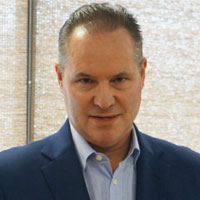Section by Section Review & Recommendations to Stay Compliant with the NSA 2022
Session 1-The IDR Process, Good Faith Estimates, and What Providers Need to Know (Presented by Thomas J. Force, Esq.)
The Departments of Health and Human Services, Labor, and the Treasury issued an interim final rule (the “IFR”) concerning the federal No Surprises Act on September 30, 2021. Although the hope was that the IFR would provide clarity as to the requirements and dispute resolution programs under the No Surprises Act, it left many questions unanswered and revealed a considerable hindrance to out-of-network providers securing fair and reasonable reimbursement.
In particular, the presumption that the qualifying payment amount (the “QPA”), defined as the plan’s median in-network rate for the applicable geographic area, serves as the primary obstacle to overcome before fair and reasonable reimbursement will be securable. Notably, this position as set forth in the IFR, contradicts Congressional intent, as explained in the recent letter from the U.S. House of Representative’s Committee on Ways and Means. Accordingly, prior to delving into how the QPA can be differentiated and, thus, bypassed, this session discusses how and why the healthcare industry must unite as one to combat the inequitable guidelines specified in the IFR. In particular, a call to join together to issue unified comments to the aforementioned Departments is issued.
This must-attend session discusses various factors helpful in bypassing the QPA, with an explanation as to how these factors can be supported by credible evidence to demonstrate that the QPA is materially different from fair and reasonable out-of-network reimbursements (a requirement set out in the IFR for circumventing the QPA).
Finally, Thomas will discuss, in detail, the requirement to issue good faith estimates to uninsured (or self-pay patients), the questions that remain as related to this process, and the logistics of compliance with the same (a task that will, at least initially, result in a considerable administrative burden, especially in light of the uncertainty as to how the dispute resolution process will play out, as a whole).
Session Objectives
This power-packed session seeks to address the unfair nature of many of the IFRs guidelines, how the healthcare industry can fight back against this inequity, and how out-of-network providers (namely who provide services at in-network facilities and are subject to the Act’s regulations) can promote the likelihood of securing fair and reasonable compensation.
In addition, this session seeks to flesh out the logistics of the provider-plan independent dispute resolution process (“IDR” or the “IDR process”), as failure to properly satisfy the steps therein can prevent full and fair compensation from being secured.
Finally, this session will advise providers/facilities as to how they can ensure compliance with the good faith estimate requirements for uninsured and self-pay patients.
SESSION 2- Section by Section Review of the Legislation and its Impact on Provides (Presented by Stephanie Thomas)
Are you wondering what the No Surprises Act means for your business? You are not alone. There are many questions and not many answers to common questions about this new law. Join us for this most trending and important topic with industry expert speaker Stephanie Thomas who will break down the details of components of the legislation and how it affects types of providers and/or facilities. While there may be a lot of negative attention on the topic, Stephanie will show you some key points of positive changes and how this can improve processes and even improve revenue. From Emergency care to nonemergent care, She plan to cover it all. Specific real-world scenarios will be given to assist the understanding of how to apply these regulations. “Good faith estimates” will be covered in-depth, as this is one of the most misunderstood aspects of this Law. New information and trends are being released daily; She will share the most up-to-date information to be sure you are fully compliant.
Session Objectives
- Understand limitations on billing
- Notice and Disclosure Obligations
- Changes to workflow
- Dispute Resolution for low reimbursement or denial
- Good Faith Estimates and balance billing
- State laws, how these affect us
- Make sure you are compliant with all aspects to avoid fines
SESSION 3- The No Surprise Act 2022: New Rules for Balance Billing & it's Impact on Providers (Presented by Thomas J. Force, Esq.)
The No Surprises Act has partially become effective following a chaotic and incomplete implementation process. During this session, healthcare attorney, Thomas J. Force, Esq. will discuss and breakdown what you need to know regarding:
- The aspects with which practices, providers, and facilities are expected to immediately comply (e.g., required disclosures and postings; how and when to balance bill your insured patients; etc.); and
- The aspects that will not be enforced (or at least won’t be completely enforced) (e.g., the requirement to provide a good faith estimate including co-party estimates to uninsured/self-pay patients).
In particular, through this program, you will learn, in detail, what is required to satisfy the aforementioned requirements. As such, you will be educated as to the form, content, and mediums for the various disclosures. Furthermore, you will be informed about the protocols for properly issuing notice and securing a patient’s consent to allow for balancing billing (i.e., over and above the patient’s in-network cost-share). Finally, advice as to the timing, form, and required information for the provision of a good faith estimate to an uninsured/self-pay patient will be shared, bearing in mind that such a good faith estimate serves as the basis for determining whether a patient can initiate a patient-provider dispute to be decided via arbitration.
In addition, during this session, Mr. Force will update you on the status of the cases brought by the American Medical Association and American Hospital Association, as well as by the Texas Medical Association, among others, against the U.S. Departments of Health and Human Services, Labor, and the Treasury. These lawsuits generally centre around the current version of the regulations regarding the calculation of the out-of-network reimbursement rate and undue pressure being put on in-network providers to accept reduced rates of reimbursement. These legal cases will be pivotal in determining the effect that the No Surprises Act will ultimately have, as the issue being decided is of critical important in determining how out-of-network reimbursement is calculated (i.e., either similar to in-network rates or based on fair and reasonable considerations).
At the conclusion of this program, there will be an opportunity to have your questions answered by Mr. Force, helping to guarantee that you get substantial value from virtually attending this program.
Session Objectives
This presentation seeks to provide clarity to a law that has been haphazardly implemented, despite the multitude of requirements it imposes. Despite the uncertainty underlying the implementation of the No Surprises Act, practices, providers, and facilities remain obligated to comply with numerous aspects thereof.
In addition, this presentation seeks to flesh out the logistics of the notice and consent process and the provision of the good faith estimates to uninsured/self-pay patients, as failure to satisfy the requirements of such processed can have significant negative consequences (i.e., difficulty, if not impossibility, of defending patient-provider disputes; inability to balance bill the patient; etc.).
Note: This is a combo of 3 Webinars (each with a 60-minute duration)


